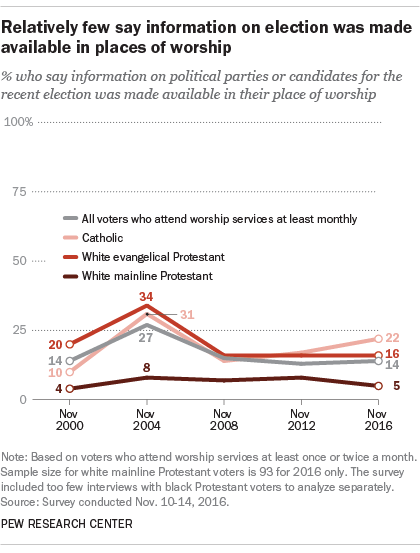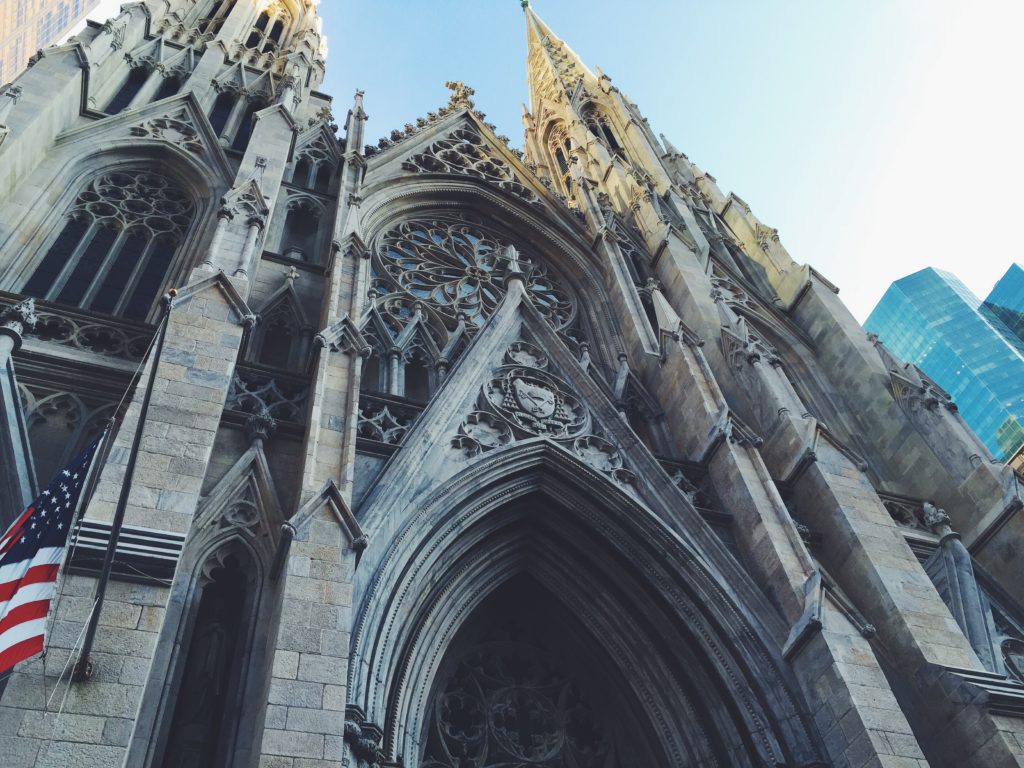Most local churches avoided politics leading up to election 2016. Churchgoers said they received little information about voting ahead of November 8, according to a post-election survey conducted by Pew Research Center.
Twenty-two percent of Catholics, 16 percent of white Evangelicals, and 5 percent of white Mainline Protestants received “information on political parties or candidates” from their churches prior election 2016. Fourteen percent of Americans who attended a religious service at least once per month said the same about their places of worship. Other specific religions were excluded “because of insufficient sample sizes.”
Overall, these levels were similar to those in previous presidential elections since 2000, except for 2004, when significantly more respondents across the board said that they had received election-related information from their churches. One interesting trend was the number of Catholics responding positively to this question – 22 percent in 2016 compared to 10 percent in 2000.

The vast majority of clergy (at least 92 percent) abstained from telling their congregants which candidates or ballot issues to vote for – whether at the national or local level. Similarly, 94 percent of American voters denied any religious organizations had contacted them about the election.
Pew Senior Researcher Jessica Martínez attributed this to restrictions under the U.S. tax code. She noted that “under current tax law, churches that endorse or actively aid political candidates can lose their federal tax-exempt status. This same tax law does not prohibit religious groups from discussing political issues – such as abortion or immigration – and expressing their preference for one policy position over another.”
In a separate survey before the election, the Barna Group found that Americans cited their faith as the most significant factor in how they planned to vote. George Barna, the organization’s founder, noted that “one out of every four Americans say they trust their church or pastor to exert a lot of influence on their political choices.” He stopped short of encouraging pastors to tell the congregants how to vote, but noted there was “great potential for churches and pastors to impact voting decisions.”
While clergy may not have specifically told their congregants how to vote for legal reasons, they certainly made an effort to discuss policy issues. Pew released statistics in August revealing that nearly two-thirds of churchgoers had heard about religious liberty, homosexuality, abortion, immigration, the environment, or economic inequality from the pulpit.





Comment by Ted R. Weiland on December 9, 2016 at 7:30 pm
Avoiding politics is impossible.
Politics cannot be severed from religion anymore than morality can be severed from legislation. One’s political persuasion is a reflection of his morality (or, more often than not, immorality) and one’s morals determines his religion. Thus, applied politics is applied religion and applied religion is applied politics.
It is therefore imperative that we get our religion correct that our politics
might be correct.
See blog article “Right, Left, and Center: Who Gets to Decide?” at http://www.constitutionmythbusters.org/right-left-and-center-who-gets-to-decide/.